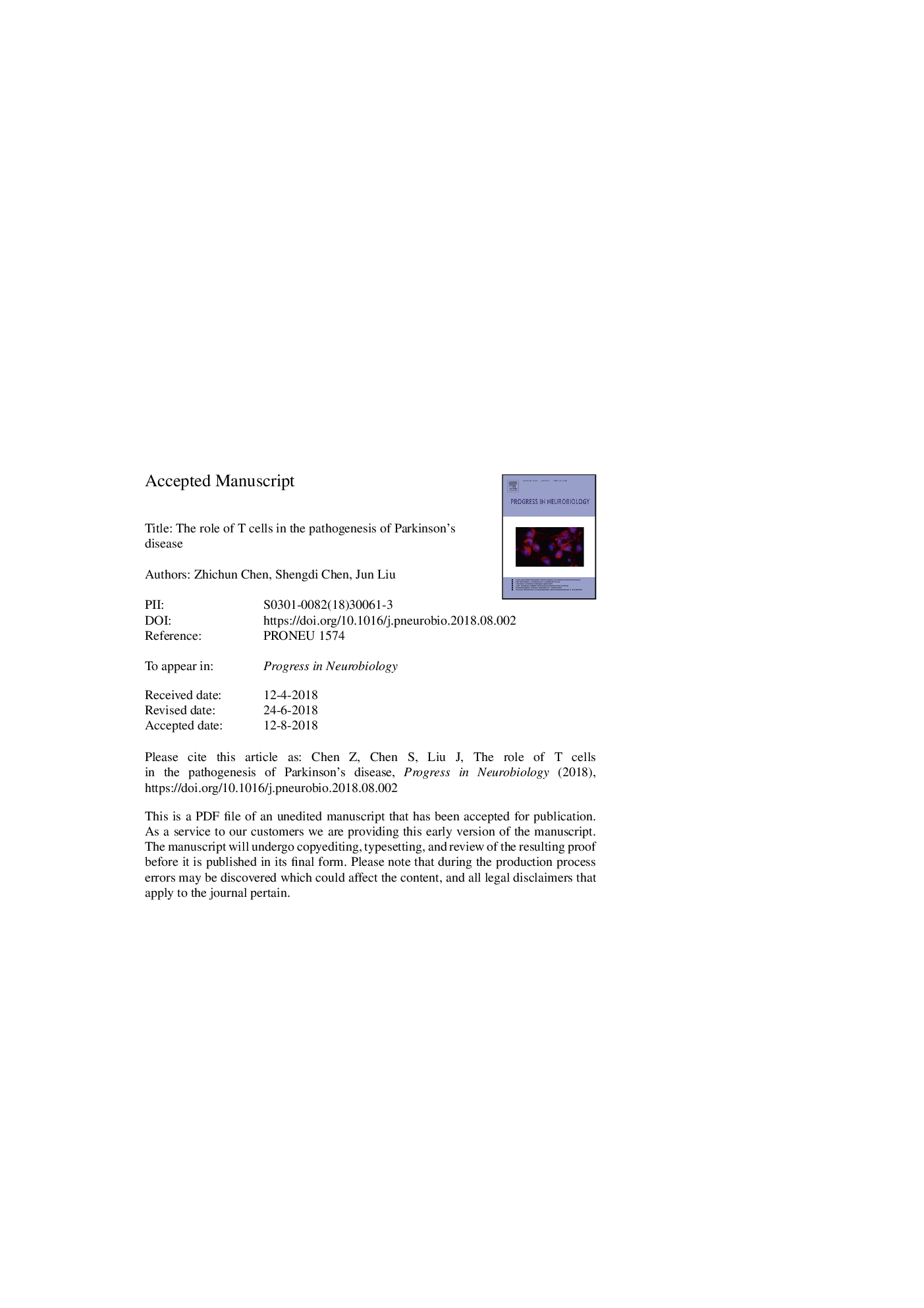| Article ID | Journal | Published Year | Pages | File Type |
|---|---|---|---|---|
| 8959220 | Progress in Neurobiology | 2018 | 87 Pages |
Abstract
Recent evidence has shown that neuroinflammation plays a key role in the pathogenesis of Parkinson's disease (PD). However, different components of the brain's immune system may exert diverse effects on neuroinflammatory events in PD. The adaptive immune response, especially the T cell response, can trigger type 1 pro-inflammatory activities and suppress type 2 anti-inflammatory activities, eventually resulting in deregulated neuroinflammation and subsequent dopaminergic neurodegeneration. Additionally, studies have increasingly shown that therapies targeting T cells can alleviate neurodegeneration and motor behavior impairment in animal models of PD. Therefore, we conclude that abnormal T cell-mediated immunity is a fundamental pathological process that may be a promising translational therapeutic target for Parkinson's disease.
Keywords
6-OHDAMMPCOXFOXP3NFATMOGBCRBECTCr6-HydroxydopamineFOXO1ICAM-1MCP-1APCEAEIFN-γAQP4Aquaporin-4DRD3dopamine receptor D3GM-CSFCCR2C-C chemokine receptor type 2LFA-1HSCTGATA3VCAM-1BCL6VLA-4regulated upon activation normal T-cell expressed and secretedCXCL10mTORCgranulocyte-macrophage colony stimulating factorRORγtIRF4B cell lymphoma 6PSGL-15-LORunx1S1PR1CCL20NR4A1LIFTGF-βCTLA-4UPDRS-IIINDP-MSHTNF-β5-LipoxygenaseSTATLymphocyte function-associated antigen-1Human leukocyte antigenantigen-presenting cellHLAexperimental allergic encephalomyelitisamyotrophic lateral sclerosisNeuroinflammationTeminterferon-γinterleukinAlzheimer’s diseaseALSParkinson’s diseaseBiomarkertransforming growth factor-βtumor necrosis factor-αtumor necrosis factor-βforkhead box P3very late antigen-4TherapyCNSBBBBlood–brain barrierT cellDendritic cellbrain endothelial cellsEndothelial cellscentral nervous systemCyclooxygenasesrunt-related transcription factor 1leukemia inhibitory factorNuclear Factor of Activated T CellsTNF-αP-selectin glycoprotein ligand-1matrix metalloproteinaseinterstitial fluidCerebrospinal fluidCSFsignal transducers and activators of transcriptionMHCmajor histocompatibility complexRANTEStransendothelial migrationMultiple sclerosisintercellular adhesion molecule-1vascular cell adhesion molecule-1ISFMammalian target of rapamycin complexForkhead box protein O1monocyte chemoattractant protein-1cytotoxic T-lymphocyte-associated protein 4GATA binding protein 3Hematopoietic stem cell transplantationmyelin oligodendrocyte glycoproteinB cell receptor
Related Topics
Life Sciences
Neuroscience
Neuroscience (General)
Authors
Zhichun Chen, Shengdi Chen, Jun Liu,
